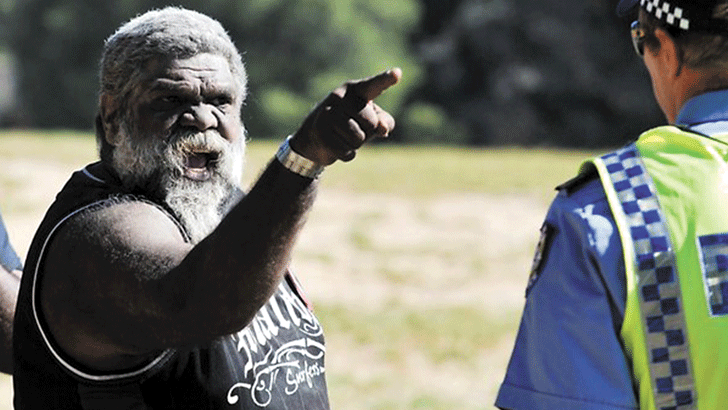‘Blacks banned’ in WA

A decade after move-on laws were introduced in Western Australia, one man is engaging in a public campaign to protest their use as a means of social control.
It was Labor’s then Attorney General Jim McGinty who pushed for the laws in 2004. At the time, it was said that police needed extra powers to prevent alcohol-fuelled anti-social behaviour outside nightclubs and parties.
Under WA’s laws, police can issue a person with a move-on notice requiring that they leave a specified area for up to 24 hours. The police need only record that they “reasonably suspect” that an offence is “about” to be committed in order to issue a notice. If a person subject to a move-on notice returns to the proscribed area, they can be arrested and fined or imprisoned.
Despite making up only 4 percent of the state’s population, in 2009 Aboriginal people received 34 percent of the 20,300 move-on notices issued. By 2013 that number had risen to 40 percent.
One homeless Aboriginal man, Ricky Louis Indich, has received 463 move-on notices since the law came into effect, including one at a city park where a charity was operating a soup kitchen in June last year.
Herbert Bropho, a Noongar man and local political activist, has been sticking up posters around inner-city parks in protest. Red Flag spoke to him about move-on notices and how they echo WA’s racist history.
“Well the posters are in response to the homeless mob … Why they say ‛‘Blacks Banned’ is that we need to educate our kids that the blue line hasn’t left. Why they are giving these fines, it goes back to the days of the old passport, where you had to get permission to come in town, from the government or the police … The blue line is still here, and the kids of Western Australia, white and black, need to be educated about the blue line.”
Under the Aborigines Act 1905, designated areas could be declared prohibited to Aboriginal people unless they could show they were in “lawful employment”. A 1927 amendment made it an offence for Aboriginal people to come within five kilometres of the city centre after 6 pm.
“Mainly all the homeless mob are the ones being picked on, and young Ricky Garlett has got over nearly a hundred and something move-on notices, and he lives and stays in the city, where they go through to Beaufort for their 5 o’clock meal.
“At the end of the day, when they go to get their 5 o’clock meal, some of them don’t make it. Manaj [police] pull them up and give them a move-on notice. They know who they are, they target them 24 hours a day.”
This aspect of the issue is particularly important to Herbert. Many of his family members were made homeless in 2003 when Lockridge Campsite – the Swan Valley community that Herbert’s father Robert Bropho and others had fought for and won in the late 1970s – was shut down by the government in circumstances similar to the NT intervention.
“There’s a lot of people homeless, of my family members. Where we are, fighting for our community back – it’s been closed down for so many years – if we could have that back, they wouldn’t have this problem of vagrancy. It’s all political.”
Herbert’s poster campaign has already attracted the attention of the WA police, but he is not one to be intimidated.
“When I put up these ‛‘Blacks Banned’ [posters] I got a lot of people talking. A lot of people thought it was wadjelas [white people], but they didn’t know it was a Noongar person until I came out of the woodwork, and I said that I was the man that put the posters up. Then, a couple of days after that I got a visit from the police, and they said if you put these posters up again, we’re going to charge you.
“I said I’m allowed to do it, I’m telling what’s happening to my people, and to my family.
“They say now it’s a time of healing, and moving on – where are we moving to? Are we moving forward in going back? The move-on notice needs to be abolished.”